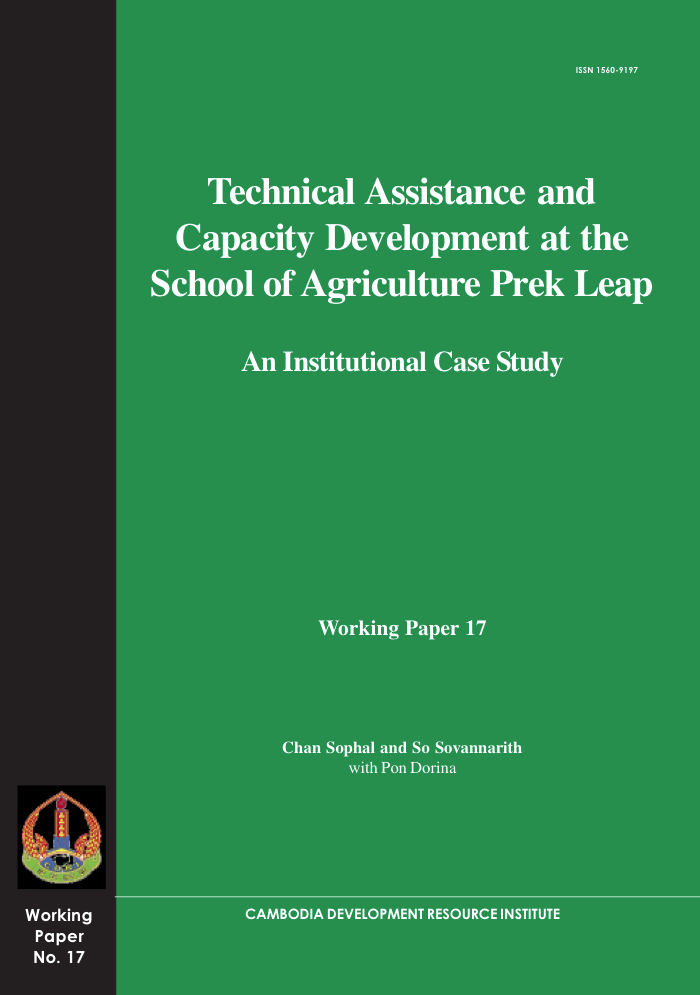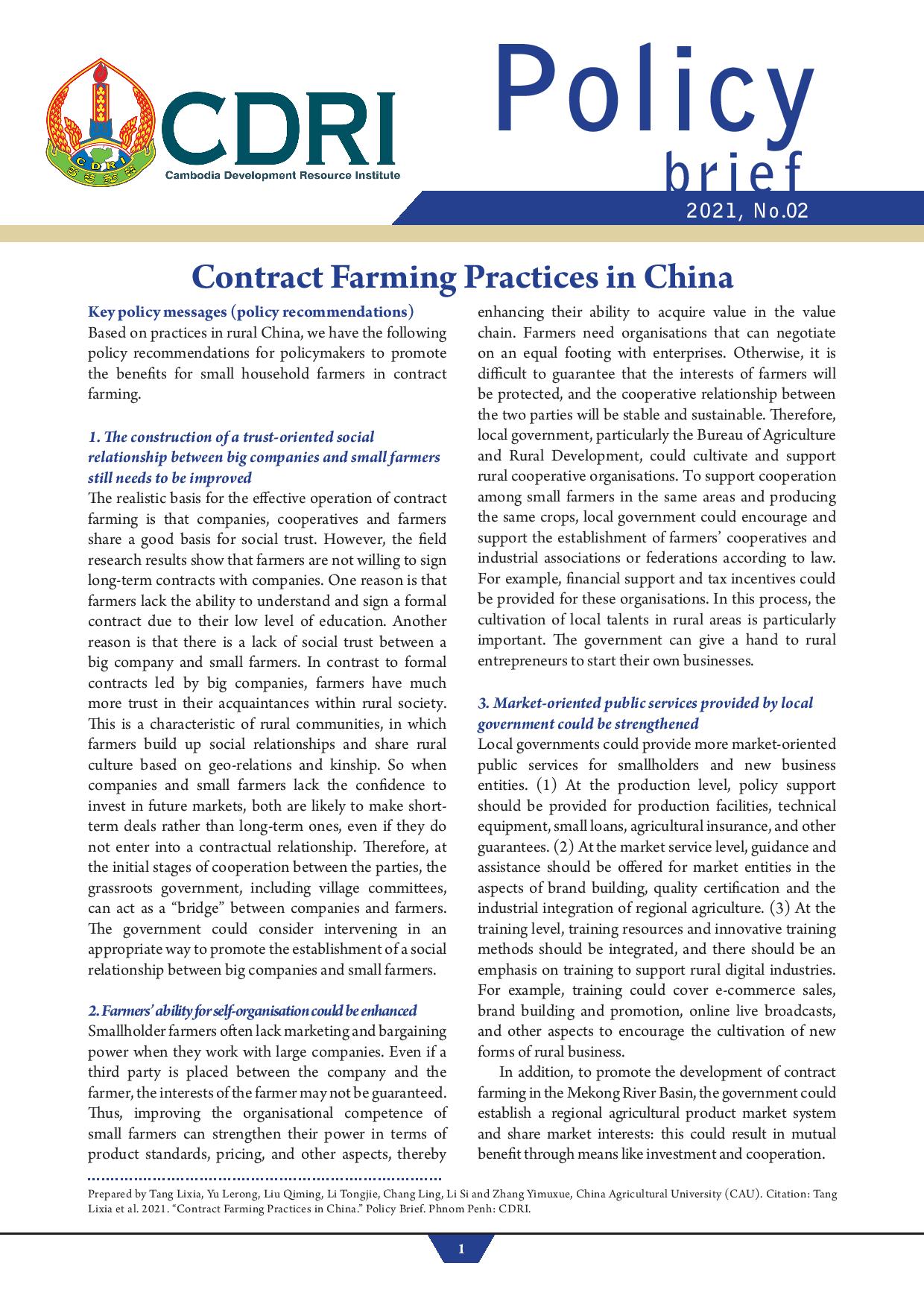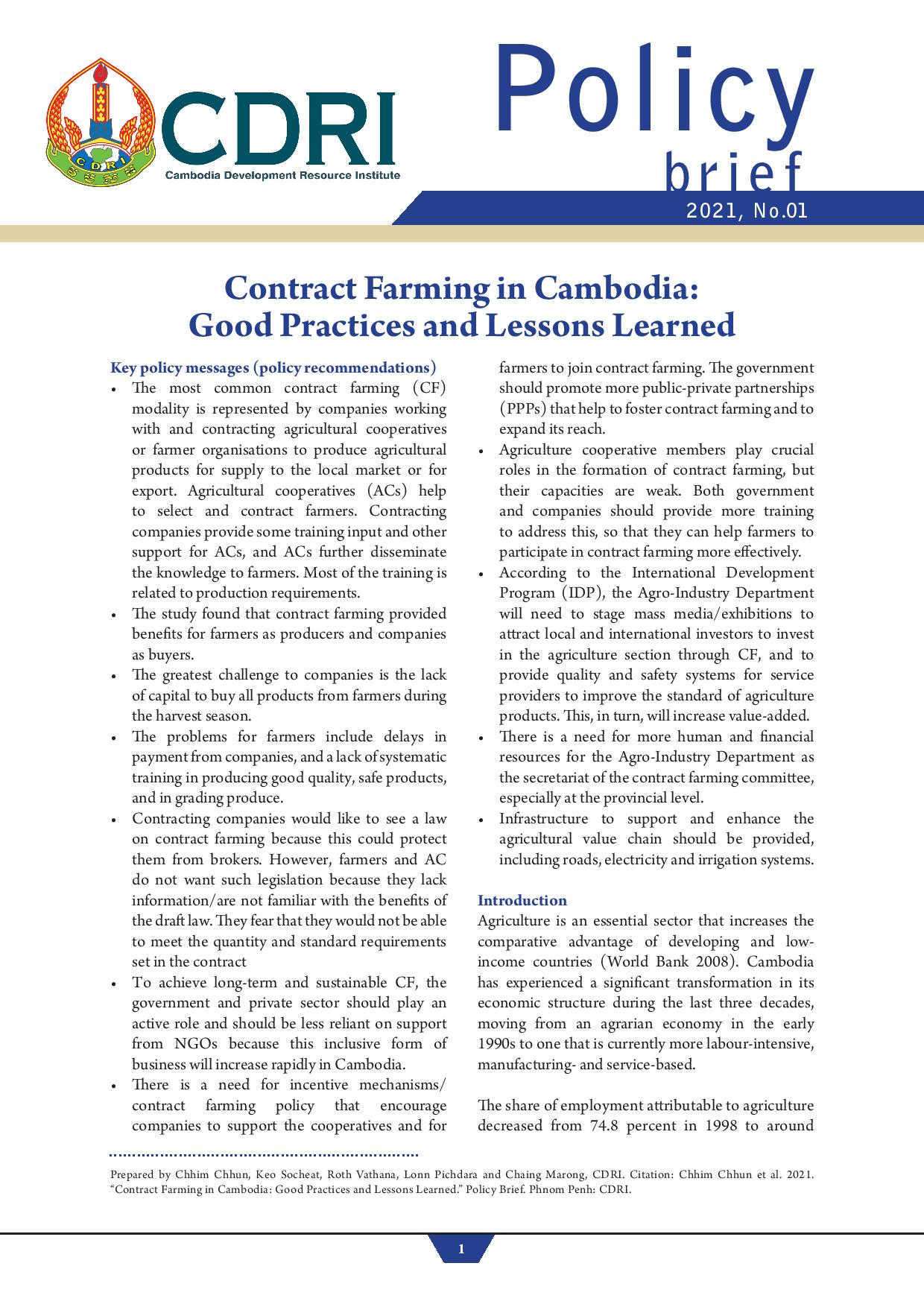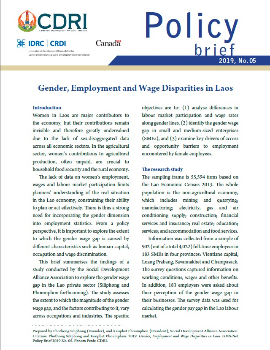
Technical Assistance and Capacity Development at the School of Agriculture Prek Leap: An Institutional Case Study
Keyword: Technical assistance, institutional capacity building, donor coordination, financial sustainability, agricultural education reform
Abstract/Summary
Arising from ashes left by the Khmer Rouge regime, the
School of Agriculture Prek Leap (SAPL), like many other government
institutions, has relied heavily on foreign assistance for its development.
Apart from material support, technical assistance (TA) has played a major role
in building both individual and institutional capacity. There is no doubt that
TA has brought tremendous improvements in instructors' capabilities, curricula,
and institutional arrangements, however, this study found an obvious lack of
cost-effectiveness if one considers the enormous amounts spent by TA projects.
Responsibility for the underachievement of TA appears to be
attributable to both the donors and SAPL. On the donors' side, the sudden
influx of projects introduced many ideas and objectives that were not owned by
the School. Since SAPL was desperate for TA and funding, it was incapable of
controlling the donors who planned projects as they saw fit and revealed
nothing about their budgets. This led to a situation in which it might be asked
who was actually running SAPL?
The study also found that the huge sums spent on TA would
have yielded higher results had the managerial capacity been better developed
and the right financial incentives been in place. Managerial capacity was not
adequately developed because, with one exception, projects concentrated on
developing instructional capacity and the curriculum, not the skills of SAPL
management.
Regarding financial incentives, government salaries were so
low, that most TA projects felt obliged to supplement counterparts' salaries in
order to ensure that they devoted their time to the project and not to a second
job. Although this approach suited donors' requirements, it did not benefit the
School because the instructors whose salaries were not supplemented by donors,
resented the supplements. Although the creation of a salary fund which pooled
donors supplements improved matters somewhat, it is clear that many
counterparts were engaged in TA projects primarily to earn the salary
supplements and/or to learn skills that would enable them to get better jobs
elsewhere.
The study found that there is a pressing need for
strengthened management capacity at SAPL to prepare for the future when donors
cease their assistance to the School. The biggest challenges lie in how to
ensure high quality courses and instruction and also achieve financial
sustainability. As long as government fails to pay adequate salaries, the
School will continue to lose its best-trained staff to other employers. Also,
as long as donors continue to plan projects independently and keep budgets and
expenditures secret, the management of SAPL will not be in complete control of
the School.
The study concluded that while TA is still badly needed at SAPL, and will be for some years to come, in order to develop management capacity, donors must collaborate with SAPL management in planning and administering projects and providing information about all aspects of projects, including their budgets and expenditures. Although the School could begin working towards financial sustainability by charging fees, this will only be possible if courses and instruction are of high quality.



